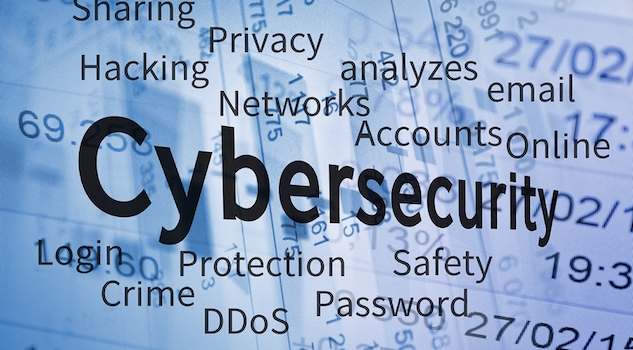A big burly guy sent me a message on LinkedIn this week looking to connect. I certainly knew who he was, but we’d never spoken before. There was an urgency in his message.
I was impressed by his concern for the people and businesses he serves. This was a man committed to his clients.
His reputation as a top security risk consultant depends on him delivering the best solutions for his customers. Risks come in all forms. It used to be enough to put up fences around your perimeter and install CCTV’s to monitor intruders. But the game has changed.
It is the unseen threat that is the most destructive. Cyber-criminal activity is escalating at a nearly uncontrollable rate, with opportunist hackers revelling in the fact more people are working remotely. This leaves us all more exposed to cyber attacks and, businesses must find a way of staying connected whilst being satisfied that their information and data are secure.
Think about the conversations you will have in your business today. Are you talking with a client about sensitive matters and transferring files? Are they end to end encrypted? Would your competitors benefit from the information you’re sharing? What’s the value of your intellectual property? Are you planning a video conference on a platform with known security failings, or one that leaves back doors open for a hacker to sneak in?
The stark reality is that over 40 per cent of the victims of cyber attacks are small businesses. Often, it’s because they don’t have adequate protections in place or are simply unaware of (or can’t keep up with) the very real threats.
You might be thinking, “It’s not as though my company holds or discusses national secrets”, but that doesn’t stop people from wanting to listen in on your conversations or see your data. Information like this can be especially useful for a competitor, a criminal or some other nefarious entity.
There are many different platforms available for conferencing, calls, messaging, and file sharing. However, its crucial companies check that the systems they use have moved with the times, and that they continue review and improve the security of the technology they rely on.
Cost effective and secure systems are available that have a similar functionality to some of the well-known platforms but offer much higher levels of security.
As we move towards remote working becoming the new normal, workers need to have simple but secure systems available to them. There is always a tendency to mix business with social needs when working from home and, if you’re working on an insecure IT connection or platform, that presents a risk.
But it’s not just those on the outside; some of the companies providing video and audio-conferencing technology actually harvest peripheral data about your digital usage, meaning there’s no escaping from them, either.
So, you’ve decided your information and that of your organisation is private, and you want it to stay that way. Here are some tips to consider when choosing a videoconferencing platform to facilitate remote working for your business.
Avoid allowing the use of “unofficial” social-media platforms
A simple step here is to have policies in place to insist your employees use systems approved by their employer
Keep everything to one application
Use an enterprise system that meets true end-to-end Advanced Encryption Standard (AES) 256-bit encryption. This might sound costly and overly “techy”, but they can be very cost effective.
Keep things simple
Not all your employees will be tech experts. Staff productivity will benefit from having easy to use platforms that work in a similar way to what employees are used to.
Consider the costs
Think about the cost in terms of productivity, reputational damage and even potentially fines rising from data protection breaches, before dismissing the solution as too expensive. Some systems offer features that are better suited for social use, so, aim for a system that is designed for your business needs and don’t pay for features you don’t need.
Ariane May, Director of Sales – Asia Pacific, Secured Communications










